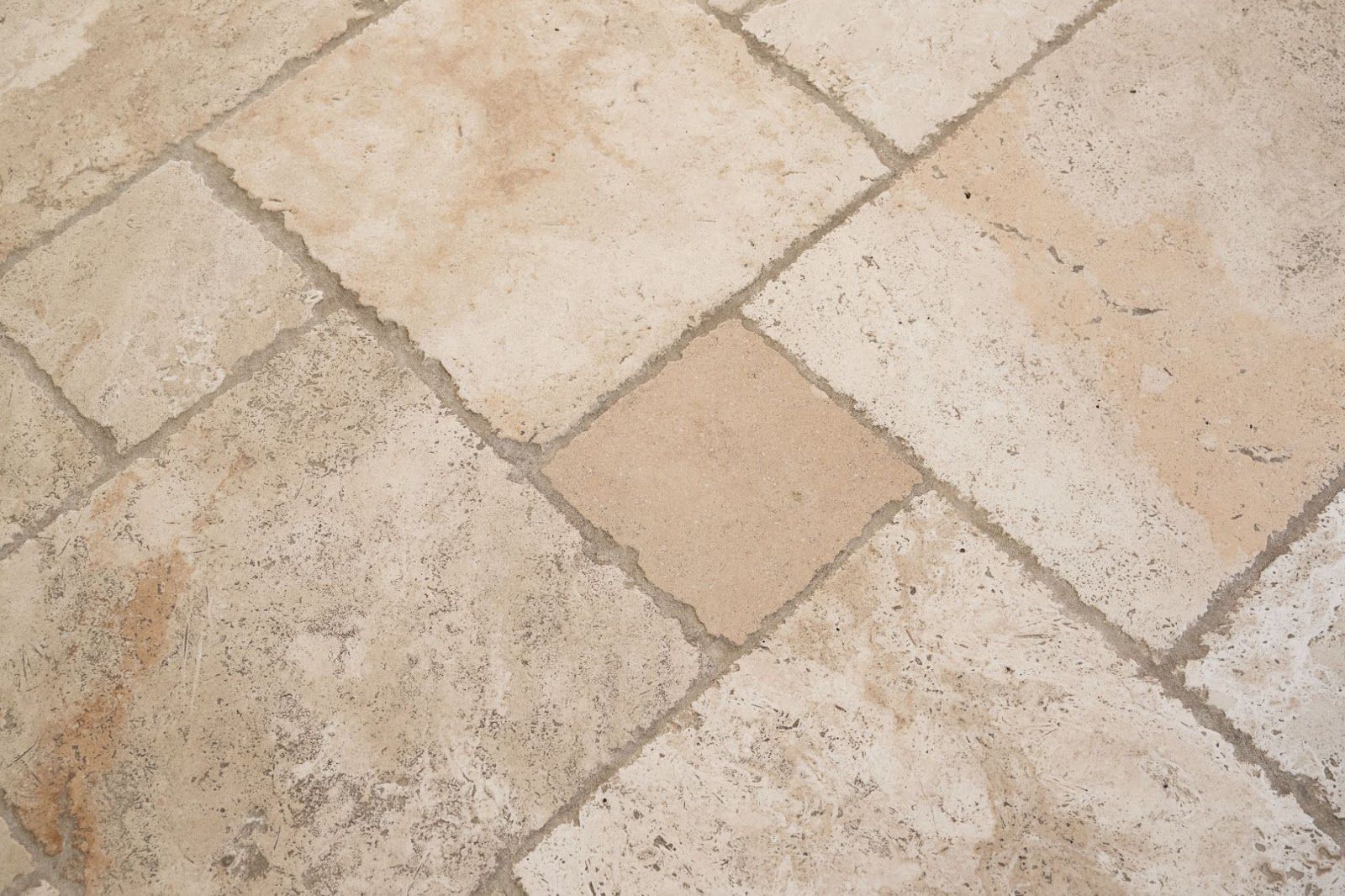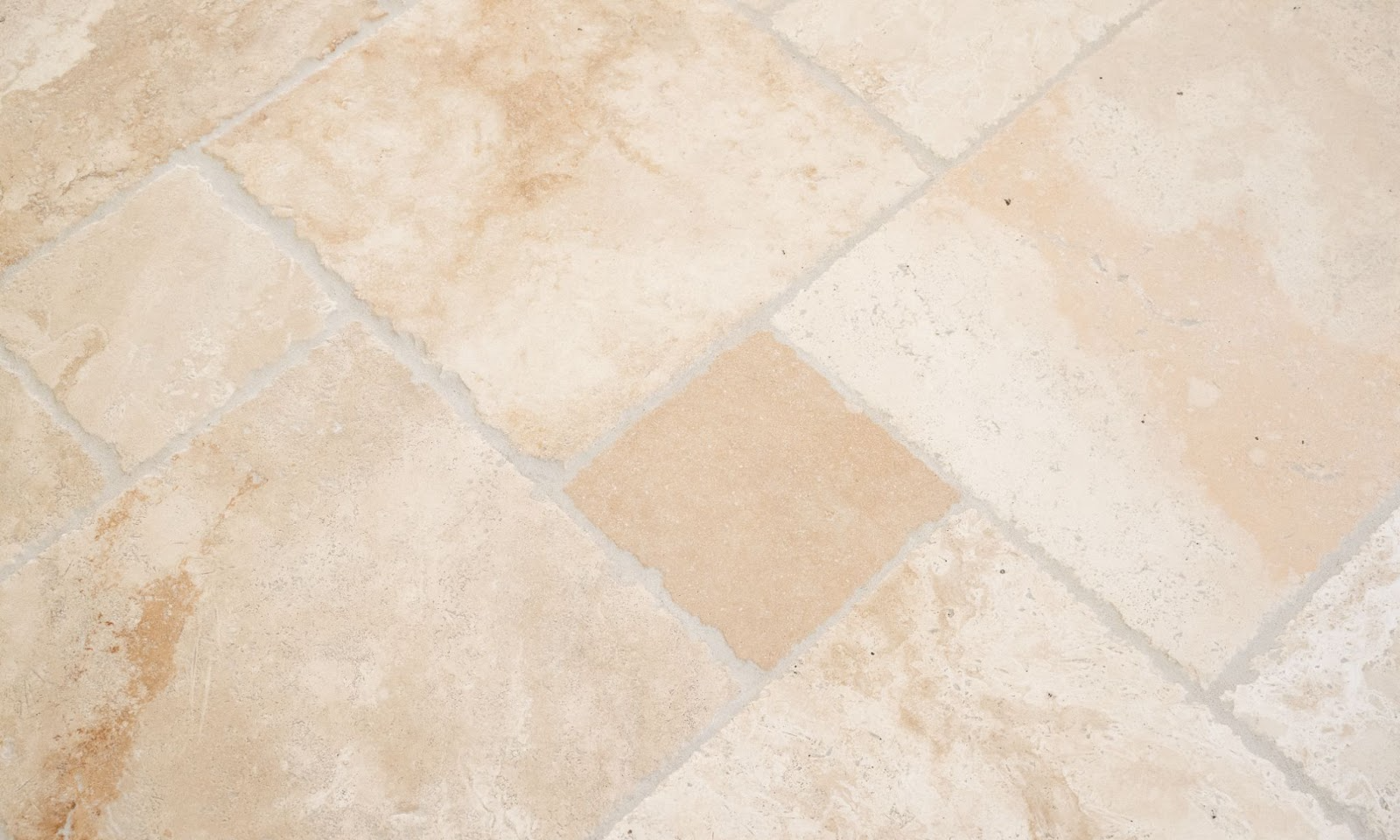What Type of Tiles are Best for Bathrooms?
Bathroom tile gets exposed to moisture, which can prematurely age some tiles or grout. Therefore, durability is critical. When picking out your bathroom flooring material, consider various tile options, such as penny tiles and brick tiles, to personalize and enhance the aesthetic of the space. Selecting the right materials for bathroom flooring is essential, focusing on factors like water resistance, maintenance ease, and aesthetic appeal.
Bathroom tiles come in many shapes, sizes, and styles for both floors and walls due to tile's durability, water resistance, and aesthetic appeal.
Bathroom Tile Materials and Styles
Bathroom wall tiles and floor tiles come in specific materials such as ceramic, porcelain, mosaic, glass, natural stone, luxury vinyl, cement, and terracotta tiles, each with its own benefits and unique characteristics.
Ceramic: Ceramic tile is one of the most popular and practical choices for bathroom walls, highlighting its non-porous nature, scratch resistance, and ease of maintenance.
Porcelain Tile: Another practical option, porcelain is similar to ceramic—scratch-resistant and easy to maintain—but it is a denser, harder material that tends to be stronger than ceramic.
Natural Stone Tiles: Natural stone tile is a desirable choice for bathroom walls, highlighting its aesthetic appeal and natural beauty.
Glass Tiles: Glass tiles can also be used as shower tiles and can give your bathroom some added design and aesthetic appeal.
Cement Tiles: Extremely durable cement tiles offer versatility and strength, making them a great option for bathroom tiles.
Luxury Vinyl Tiles: Vinyl tiles come in a wide variety of colors, patterns, textures, and treatments. It can be used as bathroom tile, but it's important to research the specific type you want to ensure that it is sufficiently water-resistant.
Terracotta Tiles: Another very durable option, terracotta tiles are a common choice for bathrooms thanks to their easy-to-clean nature. They add a feeling of warmth to the room and give bathrooms unique character.
Mosaic Tiles: Because they tend to be smaller tiles, mosaic tiles are very popular for bathroom floors. They offer more grip when wet, and they allow people to play more with design and patterns.
Choosing the Best Bathroom Tiles
Bathroom tile design plays a significant role in creating a visually appealing and functional space, but choosing the right tile matters.
Your choice is dependent on what the tile is used for (floor tile, bathroom wall tiles, shower tiles, etc.), so knowing the benefits and drawbacks of each can help you make the best decision for your home.
Many argue that the best tiles for bathrooms are ceramic tiles, and while they are a great option, many others are great, too!
Here are some factors to consider when you choose tiles for your bathroom:
Durability
Water Resistance
Scratch Resistant
Style Preferences
Glazed vs. Unglazed Tile
Budget
Large Format Tiles
Smaller Tile
Aside from these main factors, other bathroom design elements to keep in mind include:
Complementing the Bathroom's Style and Theme: Choose a tile design that complements your bathroom's overall style and theme. Whether you prefer a modern, traditional, or eclectic look, the right tile design can enhance its aesthetic appeal.
Consider Texture, Pattern, and Color: The tiles' texture, pattern, and color can create a cohesive look. Smooth tiles with subtle patterns can create a serene, spa-like atmosphere, while bold colors and intricate patterns can add a vibrant touch.
Mix and Match: Use a combination of tile materials and designs to add visual interest and depth to the space. For example, pairing ceramic tiles with glass tiles can create a stunning contrast.
Grout Lines: Remember to consider the grout lines and how they will affect the overall design. Thin grout lines can create a seamless look, while contrasting grout can highlight the tile pattern.
Ceramic Tile or Porcelain Tile
Ceramic and porcelain tiles are available in a wide variety of patterns, designs, colors, and shapes.
Ceramic tile is one of the most popular and practical choices for bathroom walls and floors. It's a versatile option that offers durability thanks to its non-porous nature, scratch resistance, and easy maintenance.
Both ceramic tiles and porcelain tiles can be cut into different shapes and sizes, and the color options are nearly endless. These materials stand up well to water, so standing puddles after a shower or bath won't harm the surface as rapidly.
Durability: Ceramic tiles and porcelain tiles are incredibly durable options.
Water Resistance: These tile materials are both water-resistant and perfect for your bathroom.
Maintenance Level: Low/easy to maintain. While nothing is maintenance-free, ceramic tiles and porcelain tiles are generally easy to clean, and the tiles themselves are stain-resistant.
Slip Resistance: This is where the two tiles differ. Porcelain tiles are among the most slip-resistant options, but ceramic tiles can become slippery when wet, depending on the finish/texture. Textured and matte ceramic tiles offer more slip resistance than glossy finishes.
Can you use ceramic tile in a shower? Yes, ceramic tiles are a great option for your shower, thanks to their durability and water-resistant nature.
Can you use porcelain tile in a shower? Yes, just like ceramic tiles, porcelain tiles are a great choice to ensure that your shower floor is not slippery or prone to wear.
Limestone Tile
Natural stone tile is a desirable choice for bathroom walls due to its aesthetic appeal and natural beauty. Limestone, a type of natural stone tile, can give bathrooms a high-end look. This aesthetic can create different moods depending on the rest of your décor, and the natural color goes well with just about anything. Remember, limestone/natural stone tile must be treated to become moisture-resistant, or damage may occur over time.
Durability: When properly sealed, limestone tile and natural stone tiles are considered very durable. Because of their porous nature, it's important to ensure that you are keeping up with yearly treatments to have them re-sealed.
Water Resistance: Limestone tile is moisture-resistant and tends to maintain its integrity best when sealed professionally.
Maintenance Level: This tile material is generally considered low maintenance once it has been treated and sealed properly. This is an important step to repeat each year to ensure that the tile is protected from erosion and stains.
Slip Resistance: Limestone tile is not considered slip-resistant in its natural state; however, it can be treated to increase slip resistance to keep your bathroom safe.
Marble Tile
Marble tiles bring a certain elegance to any room. It is available in different colors, patterns, and finishes, so it fits into a variety of different looks. Moisture doesn't affect marble very much, which makes it excellent for bathrooms.
Durability: Marble tiles are also a natural stone option, so while they are considered fairly durable, they are not stain-resistant and do have naturally occurring pores on its surface that can lead to erosion if it is not properly sealed.
Water Resistance: Without being sealed, marble tiles are known for moisture absorption. They can be treated and sealed to become water resistant, but they will absorb water, which can lead to wear and erosion over time.
Maintenance Level: Marble is considered somewhat low-maintenance. It does need to be sealed regularly (at least one per year) in order to maintain its integrity.
Slip Resistance: Marble tiles, especially when polished, are considered quite slippery. They can be treated and honed to help, or a bathroom rug can be placed on the ground to make it safer to walk on when wet. This is likely a better option for bathroom walls or countertops than it is for bathroom floors.
Glass Tile
Glass tile is becoming more popular and can give a sophisticated look if it's done right.
Glass tiles are frequently used as shower tiles, where their design and aesthetic appeal can enhance the overall ambiance of bathrooms.
Though this type of tile is incredibly durable and can last for many years, some regular maintenance is required. Glass tile does not incur long-term damage from water, but it should be kept clean to look its best.
Durability: Glass tiles are considered durable in the sense that they are water resistant, stain resistant, and don't have any natural pores. However, they are more susceptible to chips or cracks.
Water Resistance: Glass tiles are considered highly water resistant and make for a great option for shower tiles in particular.
Maintenance Level: This tile material is considered low-maintenance and easy to clean.
Slip Resistance: Similar to marble and ceramic tiles, glass tile is not inherently slip-resistant. It requires attention to the finish, glossy being slippery and textured being less slippery.
Can you use glass tiles on a shower floor? Glass tiles can be used on shower floors. However, they can be slippery when wet. It's important to consider treatments and textures to help improve the safety of this tile material.
Cement Tiles
Cement tiles are unique and can come in many different designs. This offers a customizable experience and gives your home a durable flooring option.
Durability: Cement tile is said to be even more durable than ceramic tiles, making them a worthwhile investment.
Water Resistance: When sealed, cement tiles are considered waterproof. They must be sealed professionally to maintain their durability and avoid erosion.
Maintenance Level: Some would consider cement tile to be a higher maintenance option. It needs to be cleaned regularly and sealed to prevent dirt from getting trapped or mold from growing on its porous surface.
Slip Resistance: Cement tiles are considered slip-resistant, but smaller tile patterns that allow for more grout lines can help provide more traction when needed.
Luxury Vinyl Tiles (LVT)
Luxury vinyl tiles are growing in popularity thanks to their affordability and durability. LVT can work for bathroom floors if it's properly rated and treated, so doing your own research will be crucial for finding the right option.
Durability: These often work great for bathroom floor tiles, standing up to high foot traffic.
Water Resistance: This tile material is not always built to withstand moisture. When picking out your tile, be sure to check that it has a waterproof rating beforehand.
Maintenance Level: This type of tile generally has a protective coating that helps avoid stains, scuffs, and scratches. It's considered nearly maintenance-free, aside from the occasional mopping, sweeping, and yearly professional cleaning.
Slip Resistance: Different kinds of LVT have different slip ratings. Some are slip-resistant, and some are not, so be sure to do your research before selecting tiles.
How to Keep Bathroom Tile Clean
It's inevitable---you're going to have to clean your new bathroom tile early and often, no matter what material you choose, as bathrooms collect dust and grime over time. Even if your tile is considered low-maintenance, it will still get dirty and cloudy from time to time.
What's more, just about all tile is fixed with grout, which acts as a sponge for germs and grime. The pores in grout lines can allow for moisture to get trapped, giving mold a place to grow and thrive---this is especially true for shower grout.
You can always remove grout stains yourself, doing it the old-fashioned way by scrubbing away with a toothbrush and some cleaning supplies, but there are professional grout cleaning services available to save you time and hassle.


Best Tile and Grout Lines Cleaning Services
Instead of scrubbing your bathroom by yourself, a professional tile and grout cleaning service may be a better option for you.
Zerorez is your number one source for local tile and grout cleaning services. We can provide both cleaning and long-term protection services for all types of grout, tile, and natural stone. Our innovative cleaning technology is safe for people and pets but relentless on residue, soil, and dirt.
Our processes have been fine-tuned to eliminate all visible and invisible buildup in your bathroom without leaving any soapy residue behind, which can attract more dirt down the road. Get in touch with us today to find out the difference Zerorez can make for you.